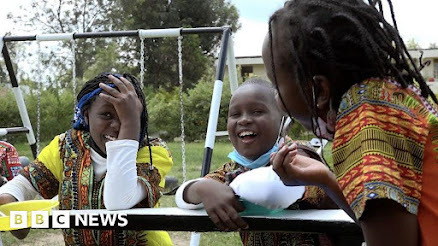MLE+: Schools Embracing Local Culture and Language (BBC)

Creating a school environment that helps the children to love their local languages and cultures seems rather idealistic. The BBC recently published a video clip of a school in Africa that does just that: celebrating the children’s culture in the school . As also in Africa, teaching is based on a post-colonial curriculum, that is rather unique. This is worth taking note of! To begin with, the Freedom School in Kenya promotes love and acceptance of their own culture by encouraging children to speak their mother tongue. The BBC documentary Afrocentrism: The school teaching kids to love their African culture shows a school culture and curriculum that is Africa centred through which the children are growing to love who they are. The children are provided with mentorship and with plenty of encouragement to embrace their own heritage. This has also resulted in an increasing use of mother tongue names.


